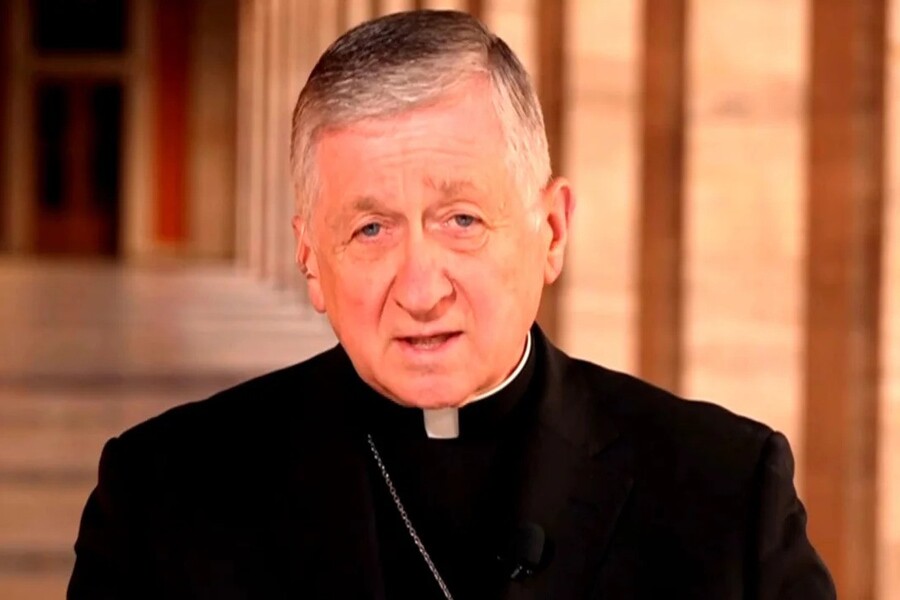In a historic moment for the Catholic Church and the United States, Chicago Archbishop Cardinal Blaise Cupich said the newly elected Pope Leo XIV will likely take on a prominent global voice in addressing urgent humanitarian and environmental crises. Speaking on CBS’s Face the Nation Sunday, Cupich emphasized that the new pontiff, formerly Cardinal Robert Francis Prevost, “feels an obligation” to engage with the pressing challenges facing humanity, including immigration reform and climate change.
“I think he’s going to be a voice for all of those things,” Cupich stated, highlighting the existential nature of many current global issues. “We’re talking about, in many ways, the survival of the human race.”
Pope Leo XIV’s elevation marks a series of firsts: he is the first pope from the United States, born in Chicago, and also holds Peruvian citizenship. He was elected last Thursday by the College of Cardinals following the death of Pope Francis and offered his first papal blessing on Sunday. His formal inauguration is set to take place next week in St. Peter’s Square.
In response to a question about whether Pope Leo XIV would maintain Pope Francis’ outspoken stance on political and global matters, particularly on immigration, Cupich said he expects continuity.
“Like his predecessors in the modern era, I believe Pope Leo will speak from a place of moral authority on matters that affect the human condition globally,” Cupich explained.
He pointed to issues like the human toll of migration and the global consequences of climate change, calling for a deeper understanding of these topics. “There is a fresh moment for us to examine the human dimensions of immigration,” he said, adding that Pope Leo is expected to urge broader participation in developing global solutions.
Cupich also addressed the longstanding tension between the U.S. Conference of Catholic Bishops and political leaders over immigration policy. While acknowledging that sovereign nations have a right to secure their borders, he stressed the Church’s advocacy for a “comprehensive immigration plan” that centers on human dignity.
“Our main focus is: how do we fix a broken system?” Cupich asked. “And until that happens, how do we, in a very human way, address those who have come into our country seeking a better life?”
This stance places the Church in continued dialogue—and sometimes at odds—with political figures who promote stricter immigration enforcement.
Even before ascending to the papacy, Pope Leo XIV was no stranger to political commentary. His social media history includes criticism of former President Donald Trump’s immigration policies, and more recently, a pointed post referencing Vice President JD Vance’s remarks on immigration. In one post, Leo shared a National Catholic Reporter article that challenged Vance’s position, underscoring that “Jesus doesn’t ask us to rank our love for others.”
Despite past disagreements, political leaders expressed optimism about Pope Leo’s papacy. Former President Trump, who has sparred with the Vatican in the past over immigration, called the pope’s election a “Great Honor” for the country on his social platform, Truth Social.
Vice President Vance, who met with Pope Francis just a day before his passing, struck a diplomatic tone last week. “I try not to play the politicization of the Pope game,” Vance said, noting that while he may disagree with Pope Leo at times, he will “continue to pray for him and the Church.”
While Pope Leo XIV has demonstrated progressive leanings on socio-political issues like immigration and environmental justice, his doctrinal views are rooted in traditional Catholic teachings. He is known for opposing the ordination of women as deacons—an issue that has stirred debate within the Church.
Asked about this doctrinal conservatism, Cardinal Cupich emphasized that Pope Francis had already expanded roles for women in Church governance without altering the core doctrine of Holy Orders. “He’s opened the door,” Cupich said. “And I am very sure that Pope Leo XIV will do the same.”
The election of Pope Leo XIV signals a potential rebalancing of the Catholic Church’s global influence. As the first American pope—and one with dual cultural ties to Peru and the U.S.—Leo is uniquely positioned to bridge geographic and ideological divides within the Church. His prior advocacy for marginalized communities, especially migrants, coupled with his conservative theological grounding, may enable him to appeal to both progressive and traditional factions of the Catholic world.
At a time when the world is grappling with wars, climate emergencies, and the erosion of democratic norms, Pope Leo’s leadership could have substantial moral and diplomatic resonance, not only among Catholics but on the global stage.
Pope Leo XIV will be formally inaugurated at a public mass in St. Peter’s Square next week, where he is expected to deliver his first major homily as pontiff. His subsequent actions, statements, and appointments will be closely watched by religious leaders, governments, and faithful observers worldwide for signs of how he intends to shape the next chapter of Catholicism.
